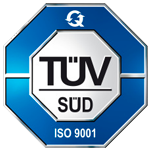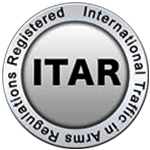How to Choose the Right Pvc Multicore Cable for Your Electrical Needs
In today's rapidly evolving electrical landscape, selecting the right components for your projects is crucial for efficiency and performance. Among these components, PVC multicore cables stand out due to their versatility and reliability in various applications, including residential, commercial, and industrial sectors.
According to a report by Statista, the global market for multicore cables is anticipated to reach USD 10.9 billion by 2025, driven by increasing demand for energy-efficient solutions and advancements in technology. PVC multicore cable, specifically, is favored for its resistance to environmental factors and mechanical stress, making it ideal for wiring systems that require durability and safety.
As we delve deeper into the factors to consider when choosing the right PVC multicore cable, you'll discover how to make an informed decision that meets your specific electrical needs while aligning with best practices in the industry.
Understanding the Basics of PVC Multicore Cables and Their Applications
PVC multicore cables are essential components in a variety of electrical applications, providing flexibility, durability, and resistance to environmental factors. According to a report by MarketsandMarkets, the global PVC cable market is expected to grow from $27 billion in 2021 to $36 billion by 2026, driven by increasing demand for reliable electrical solutions in construction and industrial sectors. Understanding the basic characteristics of PVC multicore cables, such as their temperature ratings and conductor configurations, is crucial for selecting the right cable for your project.
When choosing PVC multicore cables, consider the specific requirements of your application. For instance, if the cable will be exposed to moisture, look for options with enhanced insulation. Furthermore, the number of cores and wire sizes should align with the power load and distance of transmission to ensure optimal performance.
Tip: Always check the cable's specifications against industry standards, such as IEC 60227 for low-voltage cables, to ensure compliance and safety. Another suggestion is to consult with manufacturers or suppliers for insight into the best practices for installation and usage, which can significantly affect the cable's lifespan and functionality in your specific application.
How to Choose the Right PVC Multicore Cable for Your Electrical Needs
| Application | Number of Cores | Core Size (mm²) | Voltage Rating (V) | Sheath Material |
|---|---|---|---|---|
| Lighting | 2 | 1.5 | 300/500 | PVC |
| Power Distribution | 3 | 2.5 | 450/750 | PVC |
| Industrial Machinery | 4 | 4.0 | 300/500 | PVC |
| Control Systems | 5 | 1.0 | 300/500 | PVC |
| Renewable Energy | 3 | 6.0 | 450/750 | PVC |
Key Factors to Consider When Selecting PVC Multicore Cables
When selecting PVC multicore cables for your electrical needs, several key factors must be considered to ensure optimal performance and safety. First, the cable's application is crucial. According to the International ElectroTechnical Commission (IEC), PVC multicore cables are widely used in industrial and commercial settings due to their flexibility and resistance to various environmental conditions. Identifying the specific environment where the cable will be installed—such as outdoor exposure or proximity to chemicals—will help determine the appropriate insulation and sheathing requirements.
Another significant factor is the current rating and voltage drop over distance. The National Electrical Code (NEC) states that selecting cables with adequate current-carrying capacity is essential to prevent overheating and ensure efficiency. This is particularly vital in high-load applications where a multicore cable may have to manage substantial power transmission. Furthermore, understanding the number of cores needed for your project—whether for single-phase or three-phase systems—will help streamline your installation process and maintain performance integrity. Always consult product specifications and adhere to relevant standards to guarantee compatibility with your operational goals.
Identifying the Right Specifications for Your Electrical Projects
When selecting the right PVC multicore cable for your electrical projects, it’s crucial to identify the specifications that best match your needs. One critical factor is the number of cores in the cable, which can range from a few to many, depending on the complexity of your electrical system. According to the National Electrical Manufacturers Association (NEMA), choosing the correct number of cores can significantly enhance efficiency and reduce the likelihood of overloads, which can lead to performance issues or failures.
Tip: Always assess the power requirements of your devices. For instance, a standard lighting circuit may require only a two-core cable, while more extensive setups like control systems might need a multicore option. Additionally, considering the cable's insulation rating is vital; PVC insulation typically serves well in environments with temperatures up to 70°C, but for higher temperatures, alternative materials may be necessary.
Furthermore, paying attention to the cable's voltage rating is paramount. Most PVC multicore cables are rated for 300/500V in domestic applications, but if your project involves industrial machinery, you may need cables rated for higher voltages. A report from the International Electrotechnical Commission (IEC) emphasizes that using improperly rated cables can pose safety risks and compliance issues in electrical installations.
Tip: Always double-check with local electrical codes and standards to ensure your chosen cable not only matches your technical specifications but also adheres to legal safety requirements in your area.
Comparing Different PVC Multicore Cable Types and Their Advantages
When selecting the right PVC multicore cable for your electrical needs, it is crucial to compare the various types available and understand their advantages. PVC multicore cables come in different configurations, such as two-core, three-core, and more, each designed for specific applications. For example, two-core cables are commonly used for basic power supply, while three-core cables are ideal for applications requiring earth connections. A clear understanding of the number of cores needed will lead to a more efficient purchase.
Another factor to consider is the cable's insulation and sheath material. PVC is popular due to its excellent electrical and mechanical properties, but variations like low smoke and zero halogen (LSZH) cables are suitable for environments where fire safety is a priority. Additionally, temperature ratings can influence the choice, as some PVC multicore cables are designed to withstand higher temperatures, making them more suitable for industrial settings. By evaluating these aspects, you can confidently choose the best PVC multicore cable tailored to your electrical applications.
Tips for Ensuring Quality and Safety in PVC Multicore Cable Usage
When selecting PVC multicore cables for your electrical projects, ensuring quality and safety should be your foremost priority. Start by examining the cable’s insulation and sheathing material. High-quality PVC not only protects the conductors but also provides resistance against moisture, chemicals, and physical abrasions. Check for certifications and compliance with industry standards, which indicate that the cables have undergone rigorous testing for safety and reliability.
Another crucial aspect is the cable’s conductor construction. Look for cables with stranded copper conductors, as they offer better flexibility and conductivity compared to solid alternatives. Assess the cable’s current rating and temperature tolerance to ensure it matches your application's requirements. Proper installation practices are also essential; make certain that appropriate strain relief mechanisms are in place to prevent damage at connection points. By paying attention to these details, you can significantly reduce the risk of electrical failures and enhance the overall safety of your electrical systems.
NORTH EASTON MACHINE • 218 Elm Street • North Easton, MA 02356 • 508-238-6219

